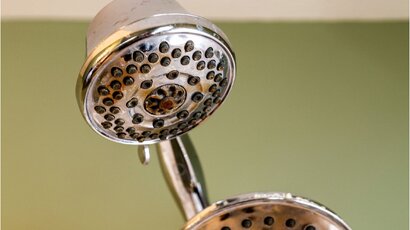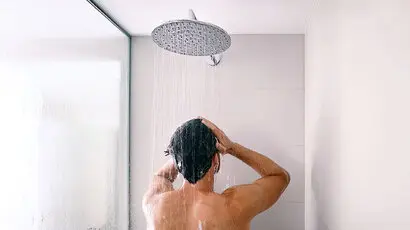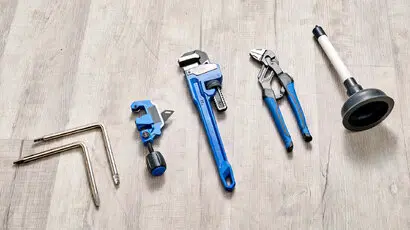5 Reasons Your Shower Is Whistling
Is a strange whistling or squealing sound coming from your shower? Find out what causes it and how to fix whistling shower in our guide!
You shouldn’t need earplugs for your shower, so it’s worth sorting out any irritating whistling noises!
A whistling sound from your shower may indicate a clogged showerhead or valves. This can reduce the water pressure, adversely affecting your showering experience. It may also signify other plumbing problems like clogged nozzles, a malfunctioning bathtub faucet, an old diverter valve or a clogged shower cartridge.
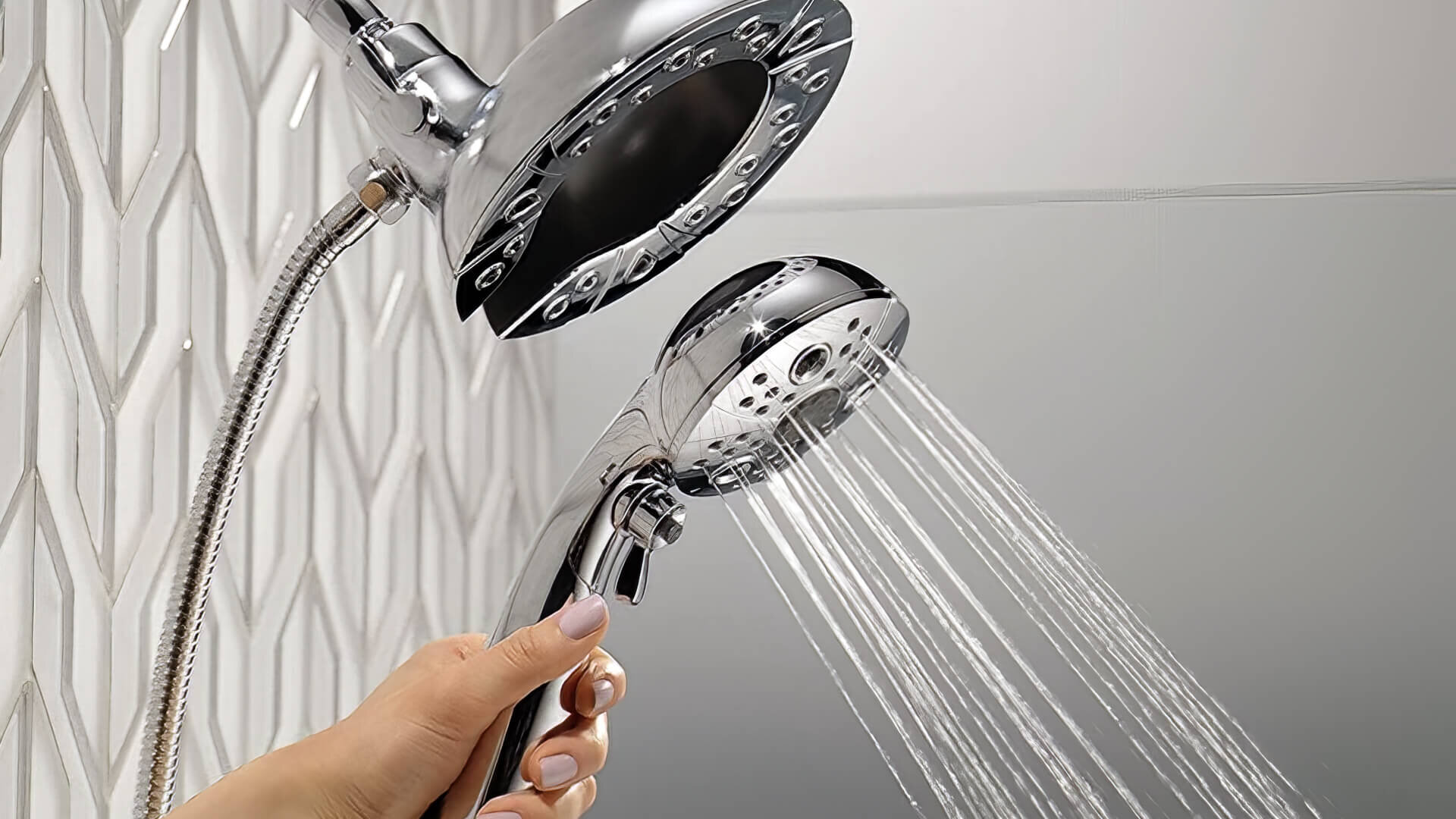
Next, let’s dive into the possible causes of that annoying whistling or squealing your shower might be making. Stick around!
Hard water in your area can lead to minerals, like limestone, clogging up your shower pipes. If left unaddressed, these deposits narrow the pipe, causing that squealing sound. You might notice it more when water pressure spikes.
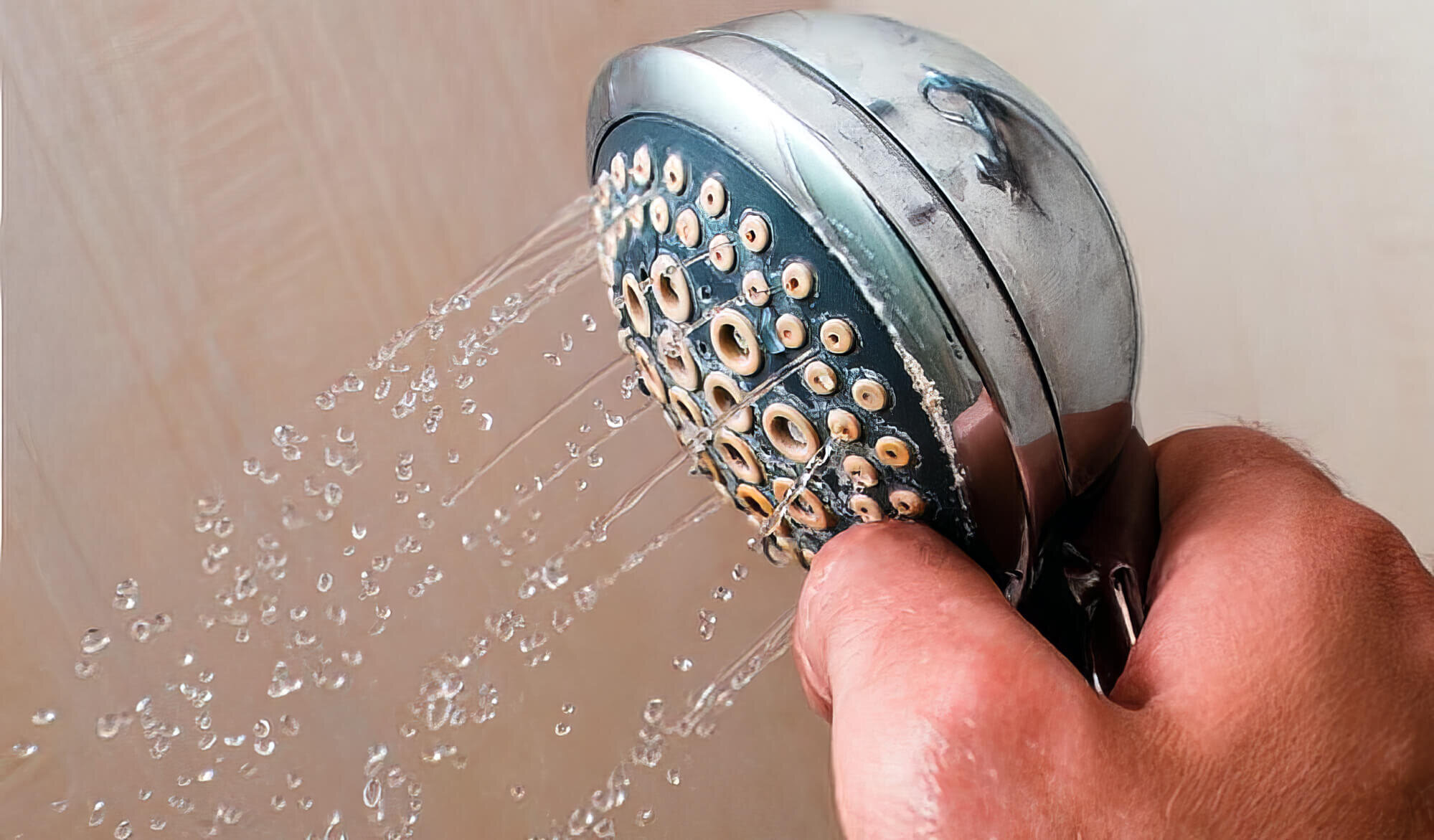
To address this problem, you can clean the shower head pipe with a solution that can dissolve the mineral deposits. But make sure the shower head metal is not affected by your solution. We recommend white vinegar, which should do the job and stop the whistling noise.
Has your showerhead seen better days? Over time, its inner workings might wear down due to constant water flow. Plus, if cleaning hasn’t been regular, minerals and sediments can accumulate. These issues might be why your shower sings a tune as water flows through.
In this case, you can call a professional plumber to replace the old squealing showers with new ones.
If your bath has a shower-faucet combo, there’s a diverter valve with a handle. This valve might act up if metal parts become rusty or if the flapper grows too old to function properly.
If you hear a whistling noise when you turn this handle, it can indicate that this valve needs to be replaced.
If your shower offers both hot and cold water, there’s likely a valve handle to balance the temperature. Over time, if this valve wears out, it can create noise, signalling it’s time for a replacement.
Also, a worn-out washer can cause a whistling sound if too much hot water has softened it. In this case, you must locate and remove the washer.
Start by removing the faucet handle. Then, you can remove the escutcheon plate and stem from the inside. The washer should now be visible. Once you know how it looks, take it out and get a similar one. Finally, replace the washer and reinstall the parts.
Shower cartridges, located inside the faucet, manage water temperature and flow, ensuring your shower is pleasant. If you hear a squeal or whistle, it’s a sign to sort it out quickly.
This issue can arise because debris that flows with the water clogs the holes in the cartridge, reducing water flow and causing the shower to whistle.
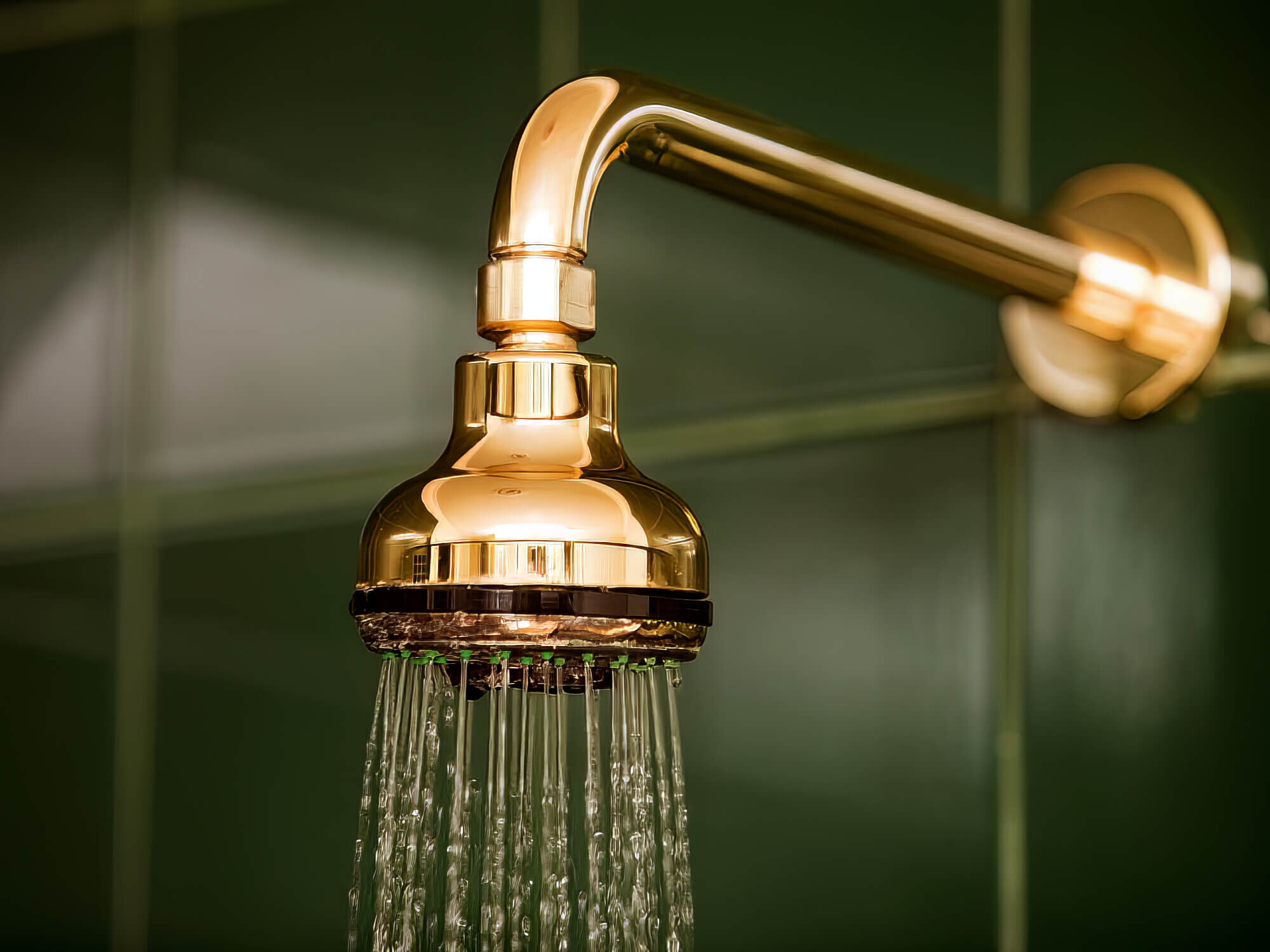
To know if the showerhead is the only reason behind the whistling or squealing sound, take it off and turn the water on. If you don’t hear any noise, it’s the showerhead causing the problem.
You can soak the entire showerhead in vinegar and leave it there. Then, brush any mineral build-up on the fixture, wash it thoroughly, and place it back.
If this does not help, you may need to change the showerhead to a new one. Besides, the showerhead pipe may also need to be replaced, so it is best to leave the job to a professional.
Also, while purchasing a showerhead, ensure you find one that does not hinder the water pressure. The shower head should be water efficient and handle high and low water pressure.
While you may try removing limescale build-up yourself from the whistling showerhead with DIY methods, replacing shower valves can be challenging. The shower valve will have parts behind the shower inside the shower wall, and inspecting them will mean looking into the system.
If you try to handle this yourself, you may cause unwanted leakage on the floor.
So, to prevent further damage to the plumbing system, call up professionals who can be trusted with the repairs. They will look into the squealing showerheads, spot the problem and remove any mineral build-up to ensure the correct hot water supply. Also, the pull handle may need to be replaced to prevent further water damage.
Once all the repairs are done, you should again enjoy the benefits of high water pressure. Melbourne plumbers who understand shower plumbing should speak to our team. WP Plumbing can help improve your water flow, remove mineral deposits and even replace your showerhead pipe.
Is your shower leaking and you can’t figure out why? Mineral build-up might be the silent offender. Over time, hard water deposits can clog, crack or warp key parts of your plumbing, leading to sneaky leaks that can cause major damage. In this post, we’ll break down how it happens, what warning signs to look for, and how to stop it before your bathroom turns into a soggy mess.
Have you turned on your shower to discover there is no hot water pressure? We are here to help with this guide to why your shower may have low water pressure!
Identify and prevent common plumbing issues in your house, and learn how to keep your pipes in the best condition. Enhance the plumbing in your home today!
